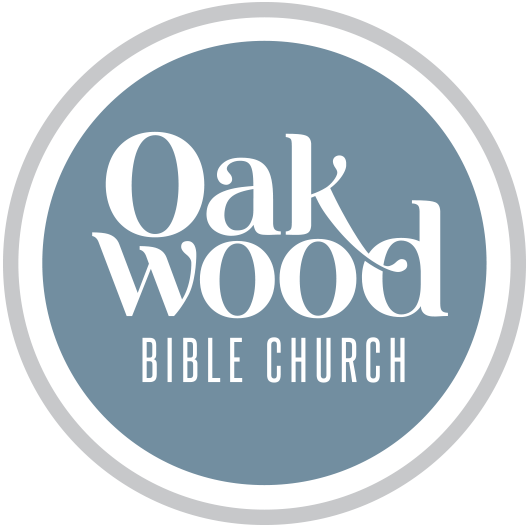Click here to view Sermon Audio on this book.
Click here to read this book online.
| Common Name: 2nd Chronicles | Book Number: 14 of 66 (Old Testament has 39 Books, New Testament has 27 Books) | Why Written: Demonstration of the God’s blessing as a result of our faithfulness to the Lord. |
| Testament: Old | When Written: 450-425 B.C. Persian Period | Key Phrase: A Look Back |
| Category: Historical Books | Where Written: Judah | Key Idea: Responsibility of Obeying Gods Covenant |
| Key People: David, Solomon, Samuel, Joab, Abishai, Asahel | Key Verse: “But as for us, the Lord is our God, and we have not forsaken Him…” (2nd Chronicles 13:10a) | Intended Audience: Nation of Israel as a reminder of what God had done for them. |
Who wrote the book?
A post-exilic (after the exile) Jewish scholar compiled material from many historical resources to chronicle the history of his people. This person is not named and remains unknown, though Ezra has been cited as a possible candidate. Whoever “the chronicler” was, he utilized official and unofficial documents to write this historical account. As noted earlier, 2 Chronicles originally was joined with 1 Chronicles as one book, separated into two books since about 200 BC when the Septuagint, the Greek version of the Old Testament, was translated.
Where are we?
Second Chronicles covers the time from Solomon’s ascension to the throne (971 BC) until the southern kingdom of Judah was finally carried into exile in Babylon in 586 BC. The focus of the book is on Judah. The author was more concerned with telling the story of David’s descendants, who reigned over Judah, than with the history of the northern kingdom of Israel. The centrality of Jerusalem, where the temple was located, falls in line with the book’s overarching focus on the priesthood as well.
Again, 2 Chronicles was probably written in the fifth century BC, “following the return of a small group of Jews to Judah following the fall of the Babylonian Empire. Intent on rebuilding the temple and resettling the Holy Land, the little community soon found itself in a struggle simply to survive.” The Jews eventually rebuilt the temple but languished for years in their fight to reclaim the land. Against this backdrop, the chronicler portrayed Jewish history, focusing on the blessings God bestowed when leaders were faithful to His Law.
Setting:
The setting is the land of Palestine and the great nation of Israel we will watch as the united powerful kingdom of Israel under Solomon after his death becomes a divided kingdom, divided both geographically and spiritually, with the northern kingdom stretching from Samaria to Damascus and the southern kingdom stretching from Jerusalem to Edom. This are covers modern day Israel, Jordan and Syria. The book covers the fall, Babylonian exile and the return from exile.
Why is it so important?
The book opens with Solomon establishing his throne over a unified nation, solidifying his authority and squashing early rebellions (1 Kings 2). He then built the magnificent temple of God, using the plans God gave to his father, David. Six of the nine chapters devoted to King Solomon focus on the temple construction, a task reserved for him since before his birth (2 Chronicles 2–7).
When the kingdom split under the rule of Rehoboam, Solomon’s son, the Levites from all over Israel sided with Rehoboam and flocked to Jerusalem to continue their priestly duties (10:1–19). But a cycle of righteousness and corruption characterized the throne. Some kings were completely evil, disregarding God’s Law and leading the people into sinful behaviors. A few kings, such as Solomon, started off as righteous but fell away. Others strayed but repented, such as Manassah (33:1–25). A few kings, such as Hezekiah and Josiah, were honored with the epitaph “he did right in the sight of the LORD” (29:2; 34:2). Throughout 2 Chronicles, faithfulness was rewarded; betrayal was judged.
A history lover will enjoy the numerous mentions of secular historical figures during this time period. From Tilgath-pilneser of Assyria, to Sennacherib of Assyria, to Nebuchadnezzar of Babylon, non-Jewish foreign leaders played prominent roles in the political fortunes of Judah.
What’s the big idea?
The post-exilic Jews needed a reminder of who their God was and how He worked. History provided the best lesson for them. “The author uses the history of Judah to demonstrate that God blesses His people when they remain faithful and joyfully worship the Lord.”
One writer stated that:
History itself is a call to worship and an invitation to hope. If the struggling community of Jews in Judah will put God first as did godly generations of the past, and show their commitment by a similar zeal for worship, the Lord will surely show His faithfulness to them. The line of David will yet again take Zion’s throne and the kingdom of God be established over all the earth.
How do I apply this?
As it did for the Israelites, history can jog our memories. Can you remember times when God blessed you? Such memories are blessings in themselves, as well as encouragements to press on in holiness, with hope and confidence.
If you are hard-pressed to recall specific times when God worked in your life, consider your devotional habits. A prayer journal that recalls prayers asked and those answered can act as your own “history” manual. God wants us to remember His works, so we, too, can praise Him for His goodness and have hope for our future!

